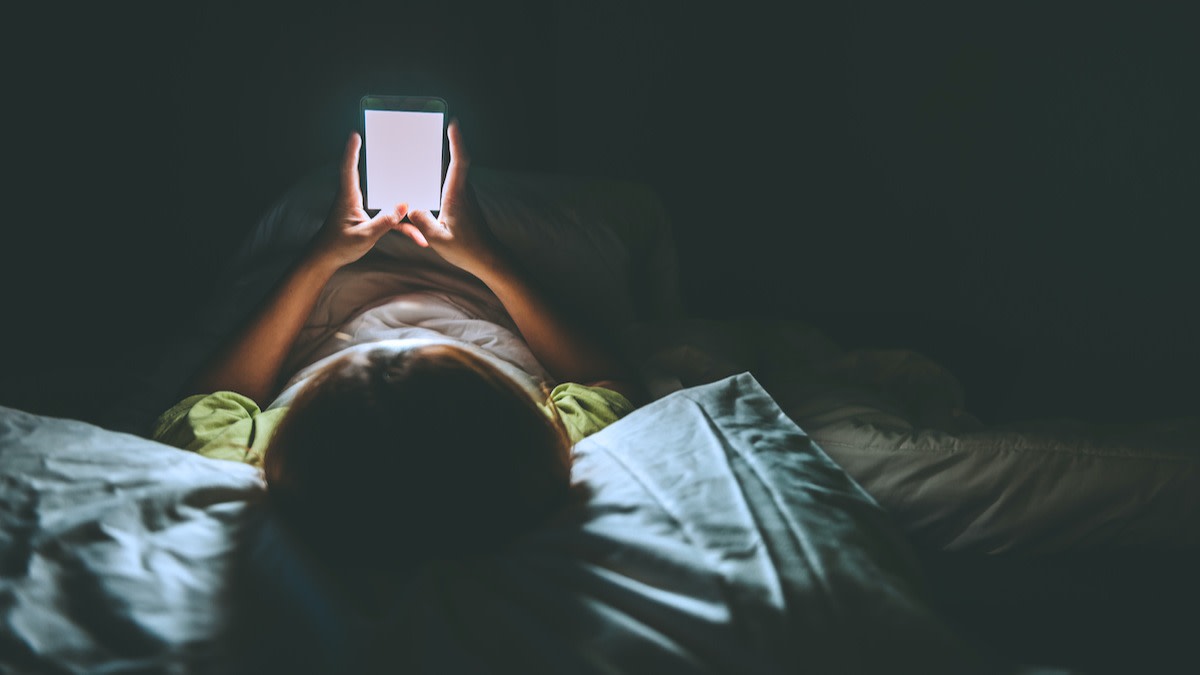Blue Light Effects on Sleep: How to Reduce Blue Light at Night
Written by MasterClass
Last updated: Jun 7, 2021 • 2 min read
Digital devices like phones, laptops, and televisions emit blue light, which has a range of effects that can impact your health—namely your quality of sleep. Learn about blue light and how you can manage exposure for a good night’s rest.
Learn From the Best
What Is Blue Light?
Blue light is a type of visible light that includes wavelengths in the 380 to 500 nanometer range, the shortest wavelengths on the visible light spectrum. High-energy blue wavelengths comprise about one third of all visible light. Sources of blue light include the sun—the main origin of natural blue light—fluorescent light bulbs, LED light bulbs, and screens on electronic devices such as TVs. Blue light increases your alertness, which is great during the day but can become a problem at night.
How Does Blue Light Affect Your Sleep?
Blue light exposure can affect your body's circadian rhythm—the internal clock that determines your sleep-wake cycle—by suppressing the pineal gland’s secretion of the hormone melatonin. Melatonin regulates your sleep-wake cycle by effectively letting your brain know that it's time to go to bed. The melatonin suppression caused by blue light helps you stay alert during the day, but it can cause sleep deprivation at night.
3 Ways to Minimize Blue Light Exposure Before Sleep
If you think the effects of blue light might be negatively impacting your sleep schedule, try these easy fixes.
- 1. Put away all screens three hours before bedtime. To reduce the temptation to look at your phone or computer, buy a dedicated alarm clock, and keep devices with screens outside of the bedroom. If you use an e-reader at night, make sure that it does not emit blue light.
- 2. Swap light bulbs. Even if you banish screens from the bedroom, other types of artificial light, such as lamps, can emit blue light and keep you awake at night. Try swapping bright lights for dim lights by adding dimmers and shades to your existing fixtures and replacing bright LED bulbs with incandescent light bulbs or energy-efficient dimmable LED lights.
- 3. Go outside during the day. Short-wavelength blue light isn't bad for your health: Humans actually need blue light during the daytime. Taking time to get sun exposure during the day can improve your mood and help you sleep at night.
Want to Learn More About Catching Those Elusive Zs?
Saw some of the best darn logs of your life with a MasterClass Annual Membership and exclusive instructional videos from Dr. Matthew Walker, the author of Why We Sleep and the founder-director of the Center for Human Sleep Science at the University of California, Berkeley. Between Matthew’s tips for optimal snoozing and info on discovering your body’s ideal rhythms, you’ll be sleeping more deeply in no time.
